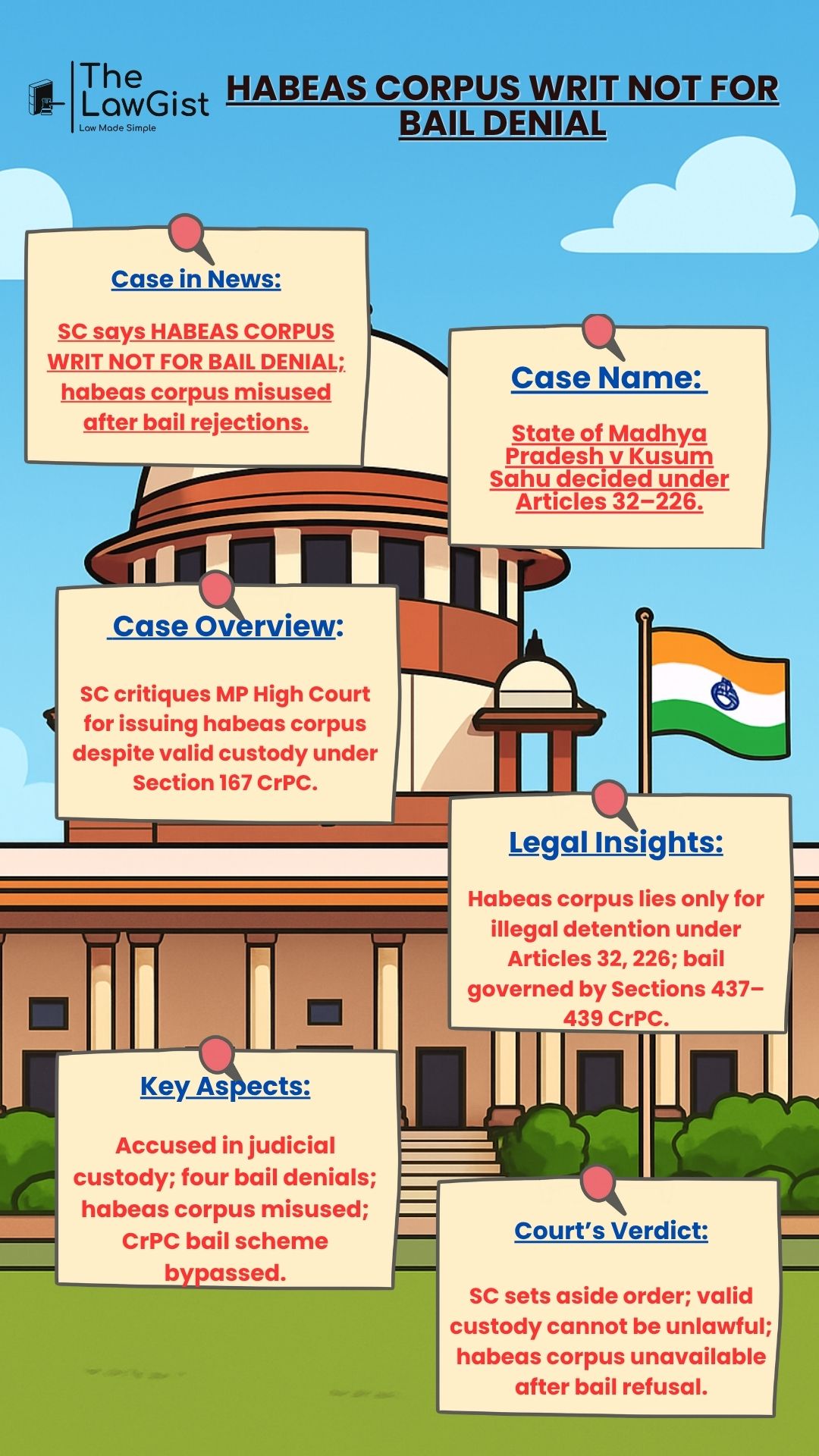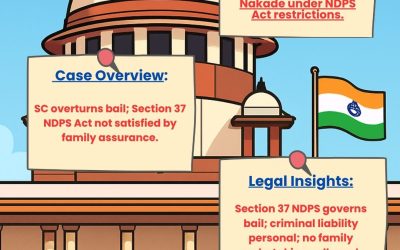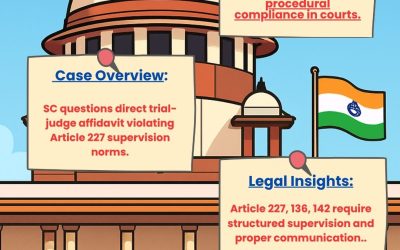
Supreme Court ruling emphasising that habeas corpus cannot override valid judicial custody or repeated bail rejections, reinforcing strict limits on the writ’s use.
Case in NewsThe Supreme Court holds Habeas Corpus Writ Not For Bail Denial after MP High Court’s unlawful release order . |
Discover powerful Latin Maxims and simplify complex legal terms in seconds.
Case Overview
Case Name: State of Madhya Pradesh v. Kusum Sahu
The Supreme Court of India set aside a Madhya Pradesh High Court order that released accused Jibrakhan Lal Sahu through a habeas corpus petition . A Bench of Justice Rajesh Bindal and Justice Manmohan criticised the High Court for treating the habeas corpus plea like a bail appeal even after four bail applications were rejected . Sahu, arrested in December 2023 in a cheating and criminal breach of trust case, remained in custody under valid judicial orders . His daughter’s plea alleging unlawful detention was wrongly accepted by the High Court prompting the State to approach the Supreme Court .
Step into the world of justice with Courtroom Chronicles
Key Aspects
Before examining the pointers, it is essential to understand that the Supreme Court stressed the limited scope of habeas corpus . The writ applies only when detention is illegal, not when custody arises from valid judicial remand . The High Court’s interference raised concerns about bypassing the established bail framework .
- Sahu was arrested in December 2023 in a 2021 cheating and criminal breach of trust case .
- Four regular bail applications were dismissed by the High Court between January–May 2024 .
- His daughter filed a habeas corpus petition alleging illegal detention despite judicial custody .
- Issue : Whether habeas corpus can override successive bail rejections and valid judicial remand .
Legal Insights
Before turning to the legal provisions, the Supreme Court highlighted that issuing a habeas corpus writ requires strict scrutiny . A criminal accused in judicial custody cannot claim unlawful detention and habeas corpus cannot be used as a substitute for bail proceedings .
- Article 32 & Article 226 of Constitution of India – Habeas corpus lies only against illegal or unauthorised detention .
- Section 167 CrPC – Allows judicial custody during investigation and trial, making such custody lawful .
- Sections 437–439 CrPC – Provide the statutory scheme for grant or denial of bail, which cannot be bypassed using habeas corpus .
- Judicial principle – Courts cannot reassess bail merits in a habeas corpus petition “as if hearing an appeal”.
Court’s Verdict
The Supreme Court of India ruled that a Habeas Corpus Writ Cannot Be Issued To Release Accused Taken Into Custody After Dismissal Of Bail Pleas . The Bench held the High Court’s reasoning “shocking to the conscience” and warned that such an approach would “scuttle the due process of law”. The impugned order was set aside . Since Sahu later surrendered, the Court directed that future bail pleas must be independently assessed on merits .
Source – Supreme Court of India
Read also – Constitution of India
The LawGist ensures exam success with quality notes—TPL, Current Affairs, Recent Judgments, and more. Backed by trusted resources and videos, The LawGist is every aspirant’s first choice.







